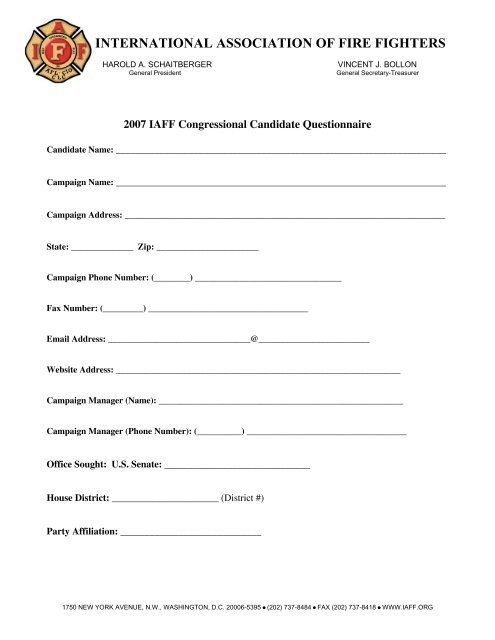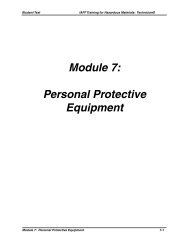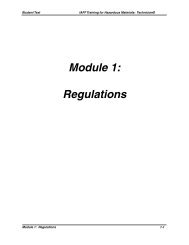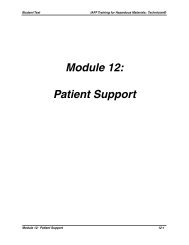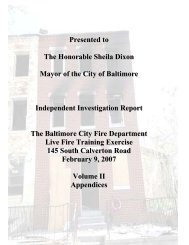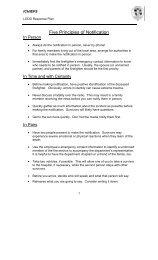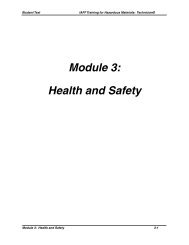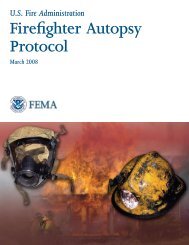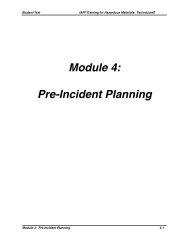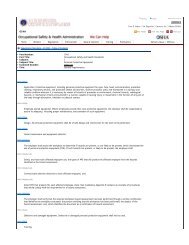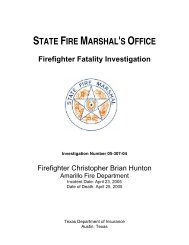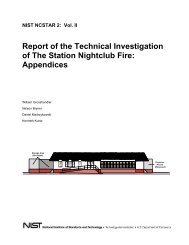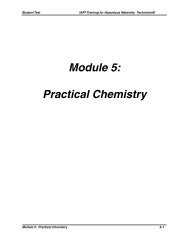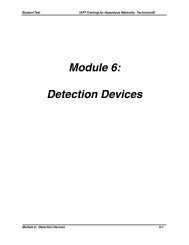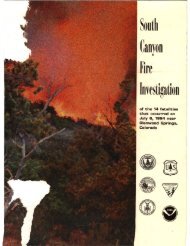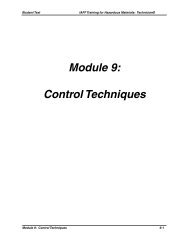INTERNATIONAL ASSOCIATION OF FIRE FIGHTERS - IAFF
INTERNATIONAL ASSOCIATION OF FIRE FIGHTERS - IAFF
INTERNATIONAL ASSOCIATION OF FIRE FIGHTERS - IAFF
You also want an ePaper? Increase the reach of your titles
YUMPU automatically turns print PDFs into web optimized ePapers that Google loves.
<strong>INTERNATIONAL</strong> <strong>ASSOCIATION</strong> <strong>OF</strong> <strong>FIRE</strong> <strong>FIGHTERS</strong><br />
HAROLD A. SCHAITBERGER<br />
General President<br />
VINCENT J. BOLLON<br />
General Secretary-Treasurer<br />
2007 <strong>IAFF</strong> Congressional Candidate Questionnaire<br />
Candidate Name: ____________________________________________________________________<br />
Campaign Name: ____________________________________________________________________<br />
Campaign Address: __________________________________________________________________<br />
State: ______________ Zip: _______________________<br />
Campaign Phone Number: (________) _________________________________<br />
Fax Number: (_________) ____________________________________<br />
Email Address: ________________________________@_________________________<br />
Website Address: ________________________________________________________________<br />
Campaign Manager (Name): _______________________________________________________<br />
Campaign Manager (Phone Number): (__________) ____________________________________<br />
Office Sought: U.S. Senate: ______________________________<br />
House District: ______________________ (District #)<br />
Party Affiliation: _____________________________<br />
1750 NEW YORK AVENUE, N.W., WASHINGTON, D.C. 20006-5395 • (202) 737-8484 • FAX (202) 737-8418 • WWW.<strong>IAFF</strong>.ORG
Filing Deadline: ______________________________ (Date)<br />
Do you have Primary Election opposition? (Please circle one) Yes No<br />
If yes, what is the Primary Election date: ______________________________<br />
Run-Off Election Date: (if applicable) __________________________________<br />
Primary Opponent’s Name(s): (if applicable)<br />
__________________________________________________________________________________<br />
General Opponent’s Name: (if known and applicable)<br />
__________________________________________________________________________________<br />
Have you received an endorsement for any <strong>IAFF</strong> Local(s)/State Association for your current<br />
campaign?<br />
(Please circle one) Yes No<br />
If yes, which <strong>IAFF</strong> Local(s)/State Association?<br />
__________________________________________________________________________________<br />
What is your campaign budget? (Please provide a copy of your campaign budget plan)<br />
Primary: _______________________________________________<br />
General: _______________________________________________<br />
Have you ever run for or held an elective office? (Please circle one) Yes No<br />
If yes, what office and when ran/held?<br />
Office<br />
_______________________________________<br />
_______________________________________<br />
Dates Ran/Held<br />
___________________________________<br />
____________________________________<br />
Were you endorsed by the <strong>IAFF</strong> in your previous elections? (Please circle) Yes No<br />
If yes, which <strong>IAFF</strong> Local(s)/State Association and for which campaign?<br />
__________________________________________________________________________________<br />
<strong>IAFF</strong> Candidate Questionnaire<br />
Page 2 of 7
1. Public Safety Employer – Employee Cooperation Act<br />
Fire and police departments benefit immeasurably from productive partnerships between employers and<br />
employees. Studies have shown that communities which promote such cooperation enjoy more effective<br />
and more efficient delivery of emergency services. Such cooperation, however, is weakened in the<br />
states that do not provide public safety employees with the fundamental right to bargain with their<br />
employers.<br />
Over the years, Congress has expanded the scope of collective bargaining laws to cover private sector<br />
employees, non-profit association employees, transportation workers, federal government employees<br />
and, most recently, congressional employees. One of the few groups of workers not covered by a federal<br />
law is state and local government employees, including public safety officers.<br />
Approximately 30 states have enacted legislation providing meaningful collective bargaining rights to<br />
public employees, including fire fighters. The results of this uneven application of collective bargaining<br />
rights are labor-management breakdowns, which can endanger the public safety. Many, including the<br />
<strong>IAFF</strong>, believe that the best way to address this issue is to pass a national collective bargaining bill,<br />
which would guarantee collective bargaining rights for all state and municipal fire fighters.<br />
While Congress has historically given states and localities wide latitude in managing their own<br />
employees, the increasing role of the public safety community in homeland security creates an<br />
obligation for the federal government to ensure that public safety officers have basic collective<br />
bargaining rights.<br />
In the 110 th Congress, H.R. 980 was introduced by Representatives Dale Kildee (D-MI) and John<br />
Duncan (R-TN). The legislation enjoys bipartisan support as is reflected by the list of co-sponsors –<br />
122 Democrats and 52 Republicans (a quarter of the Republican House Caucus). In the Senate,<br />
Senators Judd Gregg (R-NH) and Ted Kennedy (D-MA) will be introducing similar legislation shortly.<br />
The legislation establishes minimum standards for state collective bargaining laws, including: 1) the<br />
right of public safety officers to bargain over wages, hours and working conditions; 2) a dispute<br />
resolution mechanism, such as fact finding or mediation; and 3) enforcement of contracts through state<br />
courts. The legislation expressly prohibits strikes and lockouts, does not infringe on right to work laws,<br />
and does not interfere with existing state laws and collective bargaining agreements. The <strong>IAFF</strong><br />
supports the Public Safety Employer – Employee Cooperation Act.<br />
A. Do you support or oppose Congress enacting collective bargaining rights for public safety officers,<br />
including fire fighters?<br />
___________________________________________________________________________________<br />
___________________________________________________________________________________<br />
___________________________________________________________________________________<br />
___________________________________________________________________________________<br />
___________________________________________________________________________________<br />
<strong>IAFF</strong> Candidate Questionnaire<br />
Page 3 of 7
2. Health Insurance for Early Retirees<br />
According to current estimates, 46 million – or one in six Americans – lack health insurance. The<br />
emerging health insurance crisis in this country endangers the health of the uninsured and increases<br />
health care costs for all Americans. One of the largest groups of uninsured Americans is early retirees –<br />
those who leave the workforce before becoming eligible for Medicare coverage. A staggering four<br />
million uninsured Americans are early retirees.<br />
Early retiree access to health insurance is especially important to professional fire fighters because they<br />
retire earlier than other occupations. Not only do fire fighters often lose their health insurance when<br />
they retire, but they also find it more difficult than other Americans to purchase affordable health<br />
insurance because of health ailments unique to the fire service caused by long-term occupational<br />
exposures to toxins, smoke, stress and extreme physical exertion.<br />
Fire fighters are particularly impacted by the large number of uninsured Americans because fire<br />
departments are the nation’s primary provider of pre-hospital medical care and emergency transport.<br />
The uninsured are far more likely to use emergency care services for their health care needs than those<br />
with insurance, imposing greater demands upon fire departments already overwhelmed by rescue and<br />
homeland security duties. The <strong>IAFF</strong> has long supported expanding access to health insurance for all<br />
Americans, and has been particularly engaged in providing more health insurance options for early<br />
retirees.<br />
Several legislative proposals have been advanced in recent years to give early retirees more health<br />
insurance options. One such proposal in the last Congress, the Medicare Early Access Act, would give<br />
people ages 55 to 64 the option to buy Medicare coverage. This legislation would give four million<br />
uninsured early retirees over age 54 the option to enroll in Medicare; give early retirees a refundable tax<br />
credit to offset a portion of their Medicare premiums; and allow early retirees who have employer –<br />
provided retiree health coverage to enroll in Medicare whereby their employer coverage would “wrap<br />
around” Medicare or, in other words, pay for a percentage of the monthly premium and cover services<br />
not paid for by Medicare.<br />
Would you support or oppose Congress enacting legislation, like the Medicare Early Access Act, that<br />
would provide access to Medicare for early retirees?<br />
___________________________________________________________________________________<br />
___________________________________________________________________________________<br />
___________________________________________________________________________________<br />
___________________________________________________________________________________<br />
___________________________________________________________________________________<br />
<strong>IAFF</strong> Candidate Questionnaire<br />
Page 4 of 7
3. SAFER (Staffing for Adequate Fire and Emergency Response)<br />
Recognizing that the foremost need of the fire service is adequate staffing, Congress enacted the<br />
Staffing for Adequate Fire and Emergency Response Firefighters Act (SAFER) of 2003 during the<br />
108th Congress. This law authorizes funds to hire up to 75,000 new firefighters over a seven year<br />
period. Under SAFER, fire departments can apply for federal grants to help pay the costs associated<br />
with hiring new staff over a four year period. The local community is required to increase the size of its<br />
contribution over the four year period, and in the fifth year is required to pay 100% of the costs.<br />
The critical importance of adequate fire department staffing has been well documented by independent<br />
studies. Both the National Fire Protection Association (NFPA), the consensus standards making body of<br />
the fire service, and the Occupational Safety and Health Administration (OSHA) promulgated standards<br />
for the minimum number of fire fighters needed to respond safely and effectively to emergencies. An<br />
estimated 2/3 of all jurisdictions do not currently meet these safe staffing levels.<br />
A study conducted by the U.S. Fire Administration found most fire departments unable to respond to<br />
many common emergencies. A study by the Boston Globe found that fire departments are no longer<br />
meeting national standards for response times, and the National Institute for Occupational Safety and<br />
Health (NIOSH) has identified lack of staffing a key cause of fire fighter fatalities on the fireground.<br />
In FY ’07, Congress provided $115 million for SAFER, only a fraction of the $1 billion authorized for<br />
the program each year.<br />
Do you support or oppose fully funding the SAFER Act?<br />
___________________________________________________________________________________<br />
___________________________________________________________________________________<br />
___________________________________________________________________________________<br />
___________________________________________________________________________________<br />
___________________________________________________________________________________<br />
<strong>IAFF</strong> Candidate Questionnaire<br />
Page 5 of 7
4. MANDATORY SOCIAL SECURITY COVERAGE<br />
When the Social Security system was created in 1935, government employees were intentionally<br />
excluded. Even when state and local governments were given the option to join the system in the 1950s,<br />
many fire departments were still legally barred from electing Social Security coverage up until 1994.<br />
Because of this long exclusion from the Social Security system, fire departments were forced to create<br />
their own pension systems that do not take into account Social Security. These comprehensive plans are<br />
tailored to meet the unique needs of fire fighters by taking into account the early retirement ages, high<br />
rates of disability and need for extensive health care that is characteristic of public safety occupations.<br />
Proposals to bring all public sector workers into the Social Security system have often surfaced as part<br />
of a broader debate over restructuring the Social Security system. Advocates of mandatory coverage cite<br />
the increased revenue that would be reaped from the additional participants in the system. They also<br />
argue that many government workers qualify for Social Security benefits—either through their spouse<br />
or by participating in the system at a second job—and that it is unfair to exempt such people from<br />
paying Social Security taxes at their primary occupation.<br />
Opponents of mandatory coverage reply that existing pension systems do a much better job of providing<br />
for their workers’ retirement security than Social Security, and these specialized retirement plans would<br />
likely be curtailed or abolished if employers and employees were forced to pay into Social Security.<br />
Further, the Social Security benefits paid to workers who qualify for Social Security from a second job<br />
or a spouse are significantly reduced, so they are not receiving any benefit to which they are not fully<br />
entitled. Finally, opponents note that the added revenue to the Social Security Trust Fund would be<br />
minimal, and not worth the disruption in the retirement security of millions of government workers.<br />
Do you support or oppose universal Social Security coverage for non-covered state and municipal<br />
government employees?<br />
___________________________________________________________________________________<br />
___________________________________________________________________________________<br />
___________________________________________________________________________________<br />
___________________________________________________________________________________<br />
___________________________________________________________________________________<br />
<strong>IAFF</strong> Candidate Questionnaire<br />
Page 6 of 7
5. FEDERAL <strong>FIRE</strong> FIGHTER PRESUMPTIVE DISABILITY<br />
Fire fighters are exposed on a daily basis to stress, smoke, heat and various toxic substances. As a<br />
result, fire fighters are far more likely to contract heart disease, lung disease or cancer than other<br />
workers. And as fire fighters increasingly assume the role of the nation’s leading providers of<br />
emergency medical services, they are also exposed to infectious diseases. These diseases are now<br />
among the leading causes of death and disability for fire fighters, and numerous studies have found that<br />
these illnesses are occupational hazards of fire fighters.<br />
In recognition of this link, more than 40 states have enacted “presumptive disability” laws, which<br />
presume that cardiovascular diseases, certain cancers and certain infectious diseases contracted by fire<br />
fighters are job-related for purposes of worker’s compensation and disability retirement unless proven<br />
otherwise. No such law covers fire fighters employed by the federal government.<br />
Under the Federal Employee Compensation Act (FECA), federal fire fighters must be able to pinpoint<br />
the precise incident or exposure that caused a disease in order for it to be considered job-related. This<br />
burden of proof is extraordinarily difficult for fire fighters to meet because they respond to a wide<br />
variety of emergency calls, constantly working in different environments under different conditions. As<br />
a result, very few cases of occupational disease contracted by fire fighters have been deemed to be<br />
service-connected.<br />
On February 16, 2007, bi-partisan legislation, H.R. 1142, was introduced in the U.S. House of<br />
Representatives by Representatives Lois Capps (D-CA) and Jo Ann Davis (R-VA). H.R. 1142<br />
amends the Federal Employee Compensation Act to create a rebuttable presumption that<br />
cardiovascular disease, certain cancers and infectious diseases are job-related for purposes of<br />
workers compensation and disability retirement.<br />
Do you support or oppose this legislation, H.R. 1142 to create a disability presumption for occupational<br />
diseases for federal fire fighters?<br />
___________________________________________________________________________________<br />
___________________________________________________________________________________<br />
___________________________________________________________________________________<br />
___________________________________________________________________________________<br />
Please return completed questionnaire to:<br />
David B. Billy, Political Director<br />
Political Action Department<br />
International Association of Fire Fighters<br />
1750 New York Avenue, NW, Washington, DC 20006<br />
Phone: 202.737.8484 • Fax: 202.783.4570 •<br />
Web Site – www.iaff.org<br />
Email – politics@iaff.org<br />
<strong>IAFF</strong> Candidate Questionnaire<br />
Page 7 of 7


